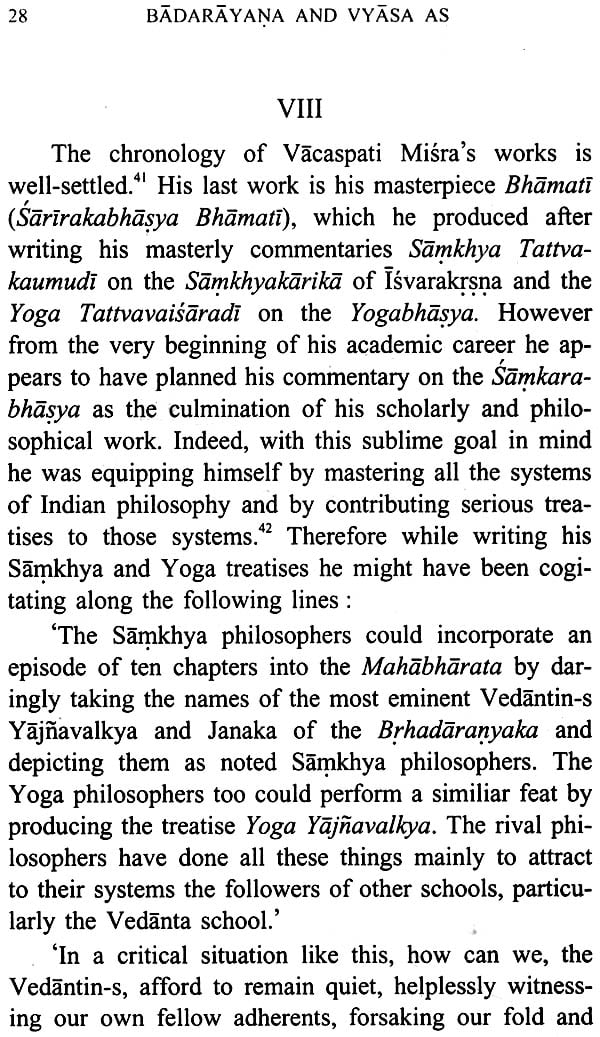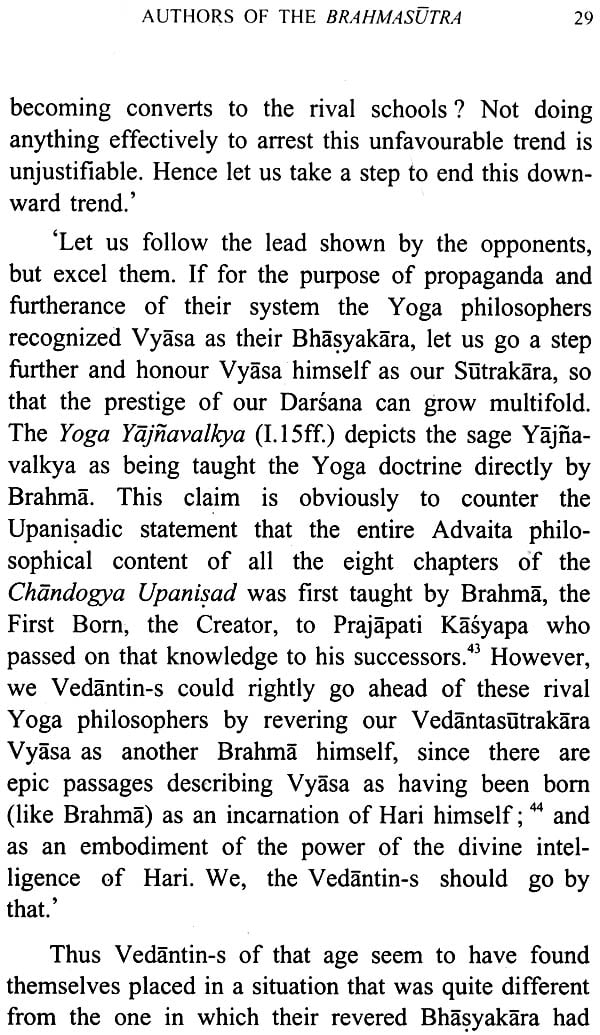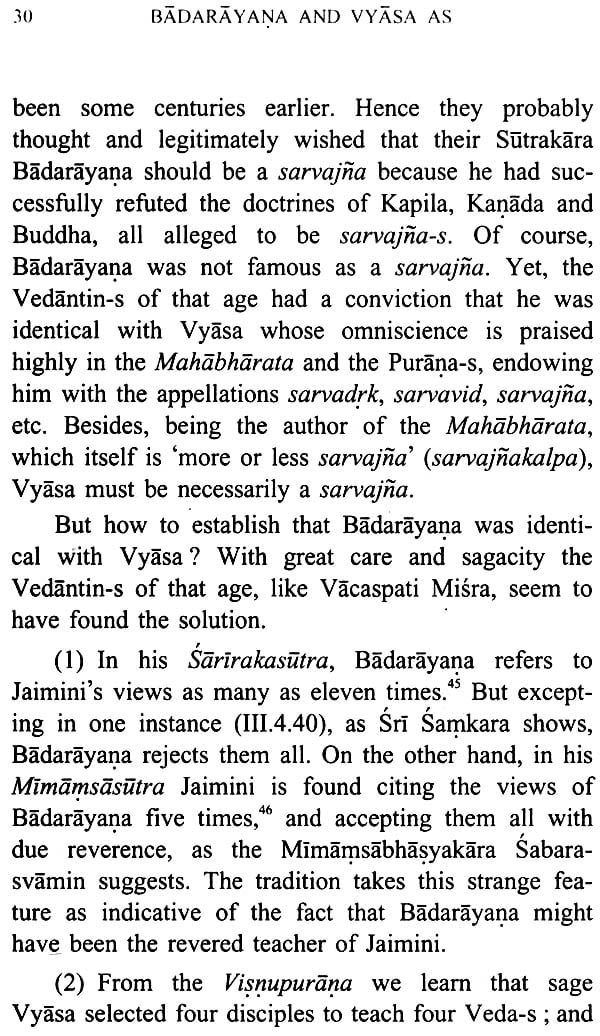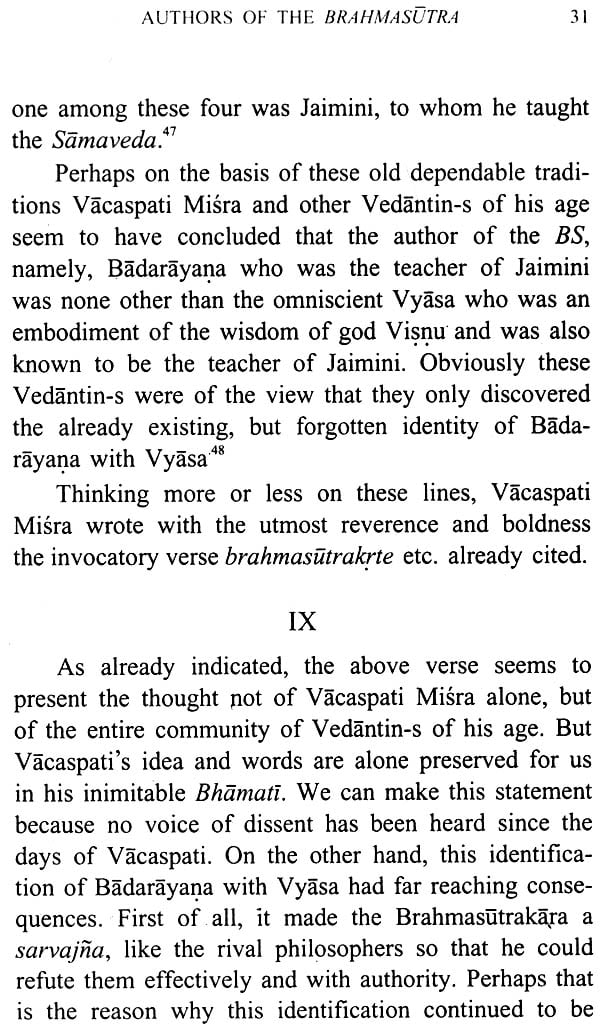
Badarayana and Vyasa as Authors of The Brahmasutra (A Historical Analysis)
Book Specification
| Item Code: | IDK561 |
| Author: | S. Sankaranarayanan |
| Publisher: | The Adyar Library and Research Centre |
| Language: | English |
| Edition: | 2005 |
| ISBN: | 8185141509 |
| Pages: | 71 |
| Cover: | Paperback |
| Other Details | 8.5" X 5.5" |
| Weight | 120 gm |
Book Description
Many are the imponderables in the history of Indian philosophy. One such is the attribution of the authorship of the Badarayana Brahmasutra to Veda Vyasa. An attempt is made here to probe into why and how it might have happened with what consequences.
The Adyarlibrary and Research centre
The Adyar library and Research Centre was founded in 1886 by Henry steel Olcott, first president of the Theosophical Society, for research in Eastern Civilization, philosophy and Religion. Its aim is to promote understanding among the peoples of the world through knowledge of the higher aspects of their respective cultures.
The collections of the Library consist of about 18,000 manuscripts containing about 45,000 works, both palmleaf and paper and some 2,00,000 printed volumes. The manuscripts are mostly from India and in Sanskrit. The printed books include old and rare Indological works and also a fine collection of books on the different religious and philosophies, in Sanskrit, English and various other languages eastern and western; and volumes of important Indological Journals.
Brahmavidya, The Adyar Library Bulletin is being published annually since 1937, presenting papers and studies on religion, philosophy and various aspects of Sanskrit and other oriental literature as well editions of ancient texts and translations.
The early Vedantin-s like Upavarsa and Sri Samkara held Badarayana to be the author of the Sariraka Brahma Sutra and considered him as different form Veda Vyasa. However around the eighth and ninth centuries, the Advaitin-s, on some assumed grounds, thought it Veda Vyasa, the renowned composer or compiler of the great Indian epic Mahabharata. This led to the identification of Badarayana with Vyasa, which is patently an anachronism. But the scholars were oblivious of this fault. Since the eleventh century, the teachers of the non-Advaita Vedanta schools took up this identification as an established fact and built upon it some of their weighty arguments and conclusions. Thus this anachronism passes for the correct position in all schools of the Vedanta.
No doubt the Advaitin-s can now at least let go of this faulty identification and revert to their earlier stand since they seem to have taken it up as a means to serve some assumed purpose. And by doing so they would not lose anything except their empty pride that their Sutrakara is the great Veda Vyasa. Of course whether they would be prepared to do so is a different question. On the other hand one is not sure whether the masters of other schools of the Vedanta can easily forsake this fault since it is mistaken for their vitality. The evidences to prove the contrary would be overshadowed by certain preferences and prejudices that had accumulated in the course of the long history of the schools concerned and they cannot be easily eradicated now. The present day scholarship does not have control over them.
The paper 'Badarayana and Vyasa as Authors of the Brahmasutra: A Historical Analysis' appearing in the Adyar Library Bulletin, vol. 67 (2003) is an attempt to study in depth the above anachronism. Because the historical background and ramifications make an interesting study the paper is presented as number 58 in the Adyar Library Pamphelt Series, so that a larger number of scholars may know the true position.









